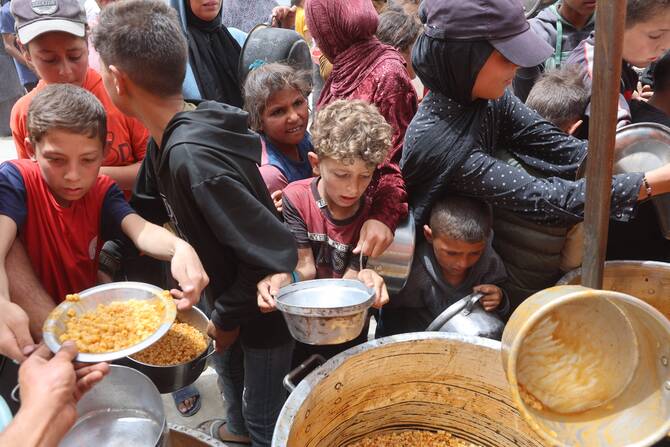BEIRUT: British Foreign Secretary David Lammy spoke to Najib Mikati, Lebanese caretaker prime minister, by phone on Tuesday and stressed “the necessity for all parties to calm the situation urgently and immediately.”
According to Mikati’s media office, Lammy said: “This is a critical moment for stability in the Middle East, and there can be no further delay. The fighting must stop now.”
Lebanese citizens have been left holding their breath while awaiting Iran-backed Hezbollah’s promised retaliation for Israel’s assassination of the group’s prominent military commander Fuad Shukr late last month in the heart of Beirut’s southern suburbs.
There is fear that the response — along with Iran’s promised retaliation for the assassination of Hamas’ political bureau chief Ismail Haniyeh in the heart of Tehran — could spark a broader conflict in the ongoing war that has lasted for more than 10 months between Israel and Hamas in the Gaza Strip, and between Israel and Hezbollah on Lebanon’s southern front.
Multiple political and diplomatic sources in Beirut have reported that US envoy Amos Hochstein will arrive in the city on Wednesday after first stopping in Tel Aviv to conduct a new round of talks aimed at de-escalation and preventing the war from spreading.
Hochstein is scheduled to meet Parliamentary Speaker Nabih Berri, and Mikati.
According to these reports, Hochstein “carries a stern message to Israeli and Lebanese officials that there is no room for maneuvering. The war will harm both sides and if they do not go to negotiations today, it will cost them a lot of blood and destruction. Ultimately, every war ends with negotiations, so they should go to the negotiations today instead of bringing further destruction to their countries.”
Iran’s Tasnim News Agency quoted Lebanese sources as saying that “Hochstein is returning to Beirut in an attempt to prevent Hezbollah from retaliating against Israel, offering no solution to the crisis.”
Hostilities between the Israeli army and Hezbollah persisted on the ground at a relatively subdued level on Tuesday.
Meanwhile, the General Directorate of General Security issued a warning to both “military personnel and civilians, regarding WhatsApp or SMS messages that invite recipients to click on links to apply for work-from-home opportunities in return for payment.”
The statement added: “Recipients are advised not to engage with the sender, to block the sending number, and to remain vigilant to prevent becoming victims of phone hacking and possible exploitation as agents for Israel.”
Lebanon has lodged a formal complaint to the UN Security Council concerning interference with its communications through cyber jamming.
In addition, Hezbollah has cautioned its supporters against utilizing an internet network compromised by Israeli forces. Hassan Nasrallah, the secretary-general of Hezbollah, has urged residents in the southern areas to deactivate internet-connected cameras installed outside homes to prevent potential hacking by Israel, which could then be used to track Hezbollah’s operatives.


























